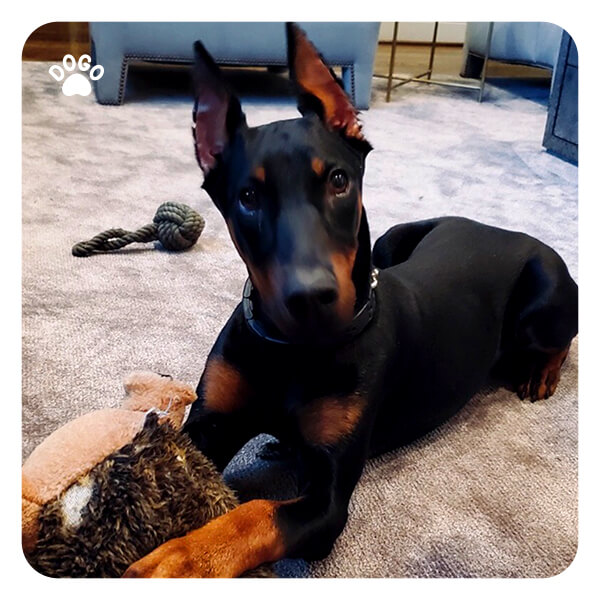 If you’ve ever found yourself wondering “why does my puppy keep biting me?” you’re not alone. Many new puppy owners experience this common behavior, and it can be frustrating and even painful. However, it’s essential to understand that puppy biting is a normal part of their development and can be managed with the right approach. In this post, we’ll explore the reasons behind this behavior and provide practical insights to help you navigate this challenging phase with your furry friend.
If you’ve ever found yourself wondering “why does my puppy keep biting me?” you’re not alone. Many new puppy owners experience this common behavior, and it can be frustrating and even painful. However, it’s essential to understand that puppy biting is a normal part of their development and can be managed with the right approach. In this post, we’ll explore the reasons behind this behavior and provide practical insights to help you navigate this challenging phase with your furry friend.
Understanding Puppy Behavior
Puppies explore the world with their mouths, much like human babies use their hands. When they’re young, they haven’t yet learned proper social behaviors, and this includes understanding the appropriate way to interact with people. As a result, they may nip, bite, or chew on things, including your hands and feet. It’s crucial to recognize that this behavior is not out of malice but rather a way for them to learn about their environment.
Teething and Sensory Stimulation
Another reason puppies tend to bite is teething. Similar to human infants, puppies experience discomfort as their adult teeth come in, leading them to seek relief by chewing on various objects, including your hands. Additionally, puppies use their mouths to explore and understand their surroundings. Just like human babies who put everything in their mouths, puppies rely on their senses to understand the world, and this often involves using their teeth.
Social Development and Play
Puppy biting is also a part of their social development. When puppies play with their littermates, they learn how to control the force of their bites. Through play, they understand what is acceptable and what crosses the line. When they transition to their new homes, they continue to explore this behavior with their human family members. It’s important to note that this behavior is not indicative of aggression but rather a natural learning process for your puppy.
Managing Puppy Biting
Now that we understand why puppies bite, it’s crucial to address how to manage this behavior effectively. One of the most important strategies is to provide appropriate chew toys for your puppy. This helps redirect their biting behavior from your hands to more suitable items. Additionally, teaching your puppy bite inhibition – the ability to control the force of their bites – is essential. When your puppy bites too hard during play, yelp in a high-pitched voice to mimic the sound of a hurt littermate. This helps your puppy understand that their bite was too forceful, just as their littermates would have taught them.
Consistency and Patience
Consistency is key when addressing puppy biting. Every member of the household should respond to biting in the same way, and it’s important to be patient as your puppy learns. Avoid any form of physical punishment, as this can lead to fear or aggression in your puppy. Instead, focus on positive reinforcement and gentle redirection.
Seeking Professional Help
If your puppy’s biting behavior seems excessive or unmanageable, seeking guidance from a professional dog trainer or behaviorist can be incredibly beneficial. They can provide personalized strategies and techniques to address your puppy’s specific needs and help you navigate this challenging phase.
In conclusion, it’s important to remember that puppy biting is a normal part of their development. By understanding the reasons behind this behavior and implementing consistent, positive training methods, you can help your puppy learn appropriate social behaviors. With patience and guidance, you’ll be able to guide your puppy through this phase, fostering a strong and healthy bond between you and your furry companion.[/fusion_text]



